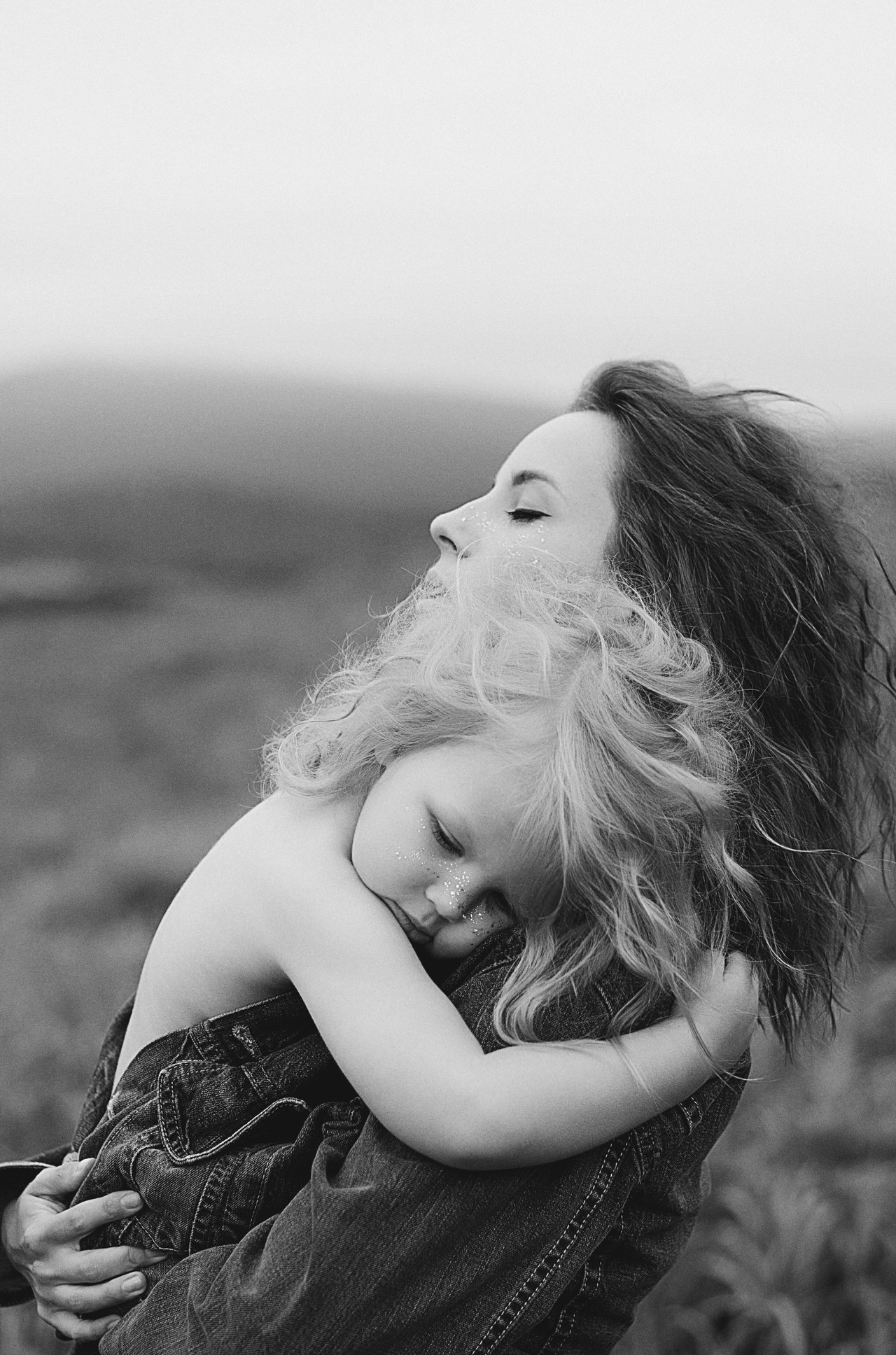When I was a little girl, all my Barbies got pregnant.
They would go into labor, and I’d create tiny delivery rooms for them. I’d spread their stiff plastic legs (why is it that Barbies back then had such rigid joints?) and cover them with washcloths, and they’d strain and cry out and push harder with each contraction.
Once the “baby” was born, I’d start the process all over again—usually with Barbie and G.I. Joe making love, but that might warrant a different essay.
I was fascinated with the biological process of pregnancy and birth and couldn’t wait until I could experience it someday.
At age 41, still childless, I had a partial hysterectomy due to a tennis-ball-sized fibroid sitting right smack in the center of my womb.
At age 41, that window was closing, but I’d imagined the birth of my daughter for years. The song I’d want played in the delivery room (“You Were Born” by Cloud Cult). How she would look emerging from my birth canal, confused and maybe traumatized and utterly lovable. I’d imagined how she’d feel growing inside my body, her fierce kicks against the wall of my torso, the sense of her soul moving in and out of my uterus as she titrated her entry into this world—my beautiful belly. I knew her name.
As we all know, deeply good people will say a lot of unhelpful things when one is grieving. I lost count of the suggestions that I adopt or become a foster mother. It’s not that these were bad suggestions—not by a long shot—but this dream I had of a fully embodied experience of life growing inside me was almost too precious, too sacred, too private to share, so I simply took these misguided suggestions with the love they were doubtless intended with.
There was a piece of consolation, though, that did truly comfort me.
A coworker wrote, “I don’t know what to say. It’s unfair.” And that was it.
Sometimes it’s just unfair.
If there’s anything I’ve learned, it’s that it’s okay to just inhabit the unfair for a while. In fact, it may be necessary to embrace the bitterness of the unfair for a time. We are always in such a rush to get to the “but-but-but!” part: the “but I guess it could be a lot worse” part, or the “but I should be grateful for the blessings I have” part, or the “but nobody ever said life is fair” part.
It’s okay to give ourselves permission to be sad and angry, and to shake our fist at the unfair.
A couple of years ago, I met a dear high school friend’s young teenage daughters and fell in love with both of them…and got home and cried. And also texted my friend to say how much I loved meeting her girls, what incredible young women they were.
I knew I would’ve wanted my own daughter to be just as radiant, kind, and warm as either one of them. My friend texted back how amazingly grief and joy can occupy the same space, and I knew exactly what she meant.
We had a baby shower on Zoom for one of the team members at my job a few weeks ago. At one point, I wondered if I should turn off my camera; the intermittent tears felt fresh, and at the same time, many years old. Grief and joy showed up hand in hand, inextricable from one another, yet again.
But I would no longer call these kinds of tears when I see babies in strollers or nursing mothers or hear of a family member’s new pregnancy painful, and that’s precisely because I didn’t try to bypass the unfair, until the unfair was exhausted and ready to move out of my psyche organically.
Once the unfair was fully metabolized, I could occupy the tender place that was—and still is—grief. I’m okay with grieving all of this, the most feminine and remarkable part of my body that was removed and the daughter who had no place to enter the world as a result, for the rest of my life.
Every time I cry renewed tears, I feel my own soft-core, my tenderness, and I am reminded of the tenderness of every other living soul I encounter. Authentic grief lives in our softest places, and allowing myself access to that place inside my own heart blesses me with so much love for those private spaces everyone I meet is carrying.
Having to grieve for any reason at all is unfair. And it’s okay to admit that it’s unfair because when we do, we drop into maybe the most connective tissue there is between ourselves and others—this mystery of loss.
None of us escapes it. But if we allow ourselves this tenderness and sweet compassion, we don’t have to do it alone, and we don’t have to let others do it alone either.
~
 Share on bsky
Share on bsky






Read 12 comments and reply